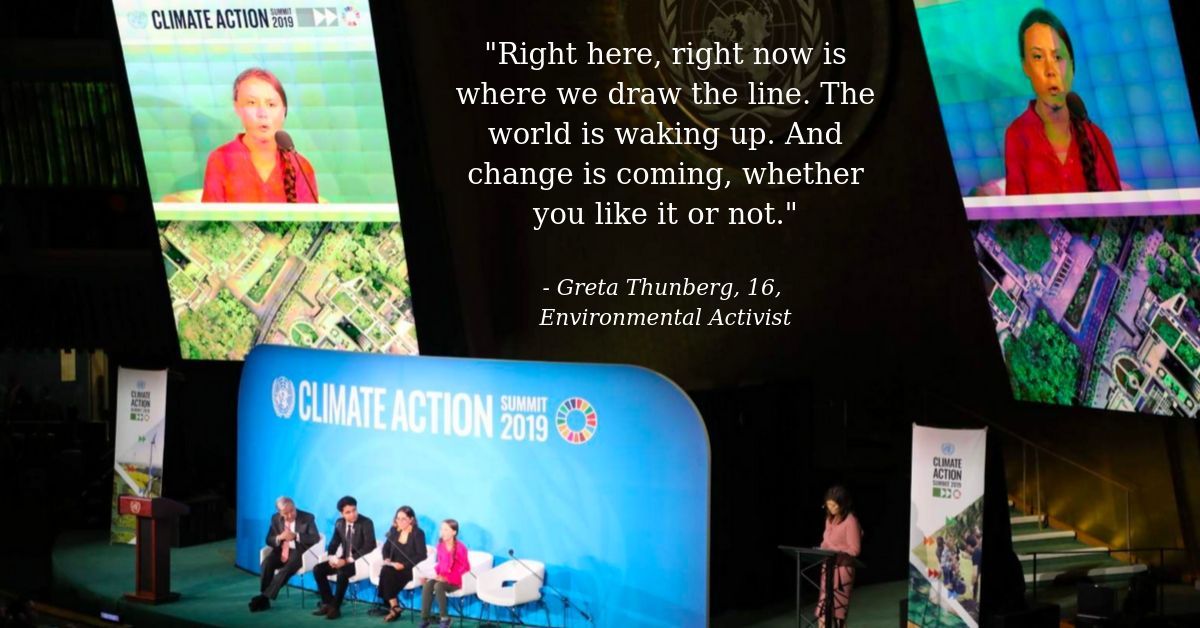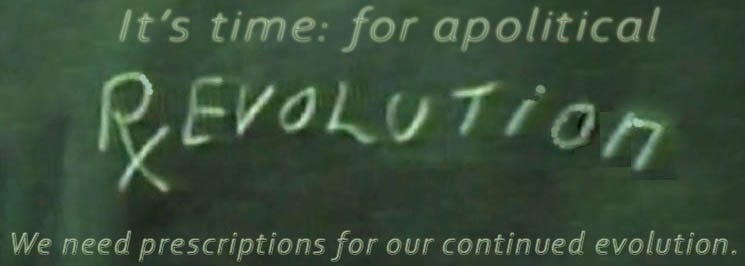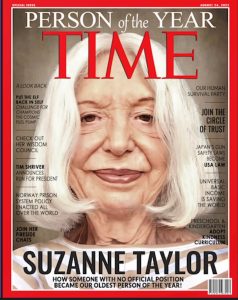
Dearest Greta – I think about you a lot. How perfect you are for these times. The first minute I saw you I was sold. Here’s a blog post I did in 2019: Greta Thunberg is a force of nature!
Before you were talked about, I thought how awesome it would be if Time Magazine picked you. At a time when we have no leaders with their lights on, hopefully you will go down in history like Joan of Arc but with a better outcome.
While you’ve gotten serious attention to the problem, we could use a comparable champion for what to do. I ask thought-shapers on my podcast what they would do if they ruled the world, and even from them there isn’t much that comes forth. That’s the missing link. After your Time cover, I pictured being the other half of the equation: you stir them up to act and I get them to make an action plan. My wild fantasy in the year after you were the youngest on that cover was what a great bookend it would make if I was the oldest one.
I’m contacting you to inquire about enrolling you in this idea. How about using your cache to help me to help the world?
Here’s something I wrote when statements were invited, “Imagining If.”
IMAGINING IF
I preoccupy myself imagining if. First, it’s imagining being in a paradise on Earth where we care about each other as much as we care about ourselves. Then, it’s imagining getting there. It wouldn’t require a big leap. We are on the cusp of a shift of worldview, and, if we bend in the right direction, evolution’s proclivity to evolve toward higher states of consciousness will do the rest.
With heaven’s wind in our sails, maybe a little trimtab action that mortals could get behind would steer our course toward sensing humanity as one entity. I imagine having the pulpit. Like Greta riveting people to how dire our situation is, I get everyone focused on coming up with what to do.
To get us over the danger we’re in, where the extinction of humanity is a real prospect, imagine if we gave everyone on Earth food, shelter, education, and health care. Then, with survival handled, so humanity could work together on how to be in the world, imagine a worldwide campaign that encourages kindness: school programs for little kids, billboards, Saturday Night Live sketches, reminders everywhere to make the whole world a sweeter place.
“When we start seeing ourselves as one united human species, there’s no telling where we will go.” I got that somewhere recently. Yes! I can imagine us creating the more beautiful world our hearts know is possible and all it would take would be for us to come to our senses! I am devoted to doing what I can to help that occur.
So it’s too late to get that Time cover the year after yours, but I can wait. In the meantime, can we put our heads together to try to bring that about?
Share and/or leave a comment







